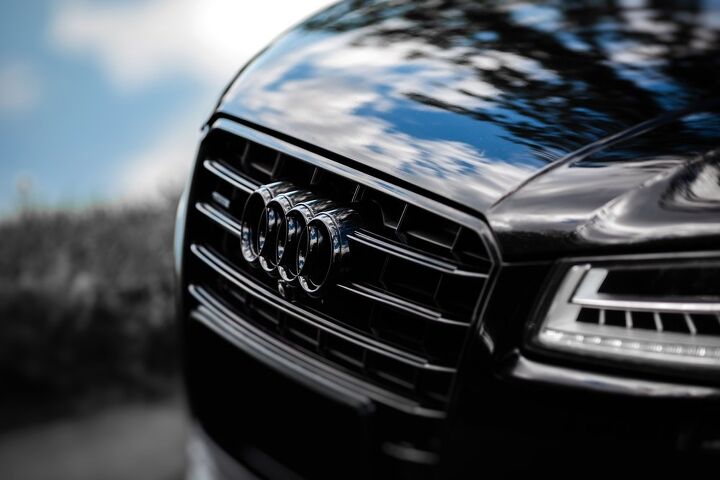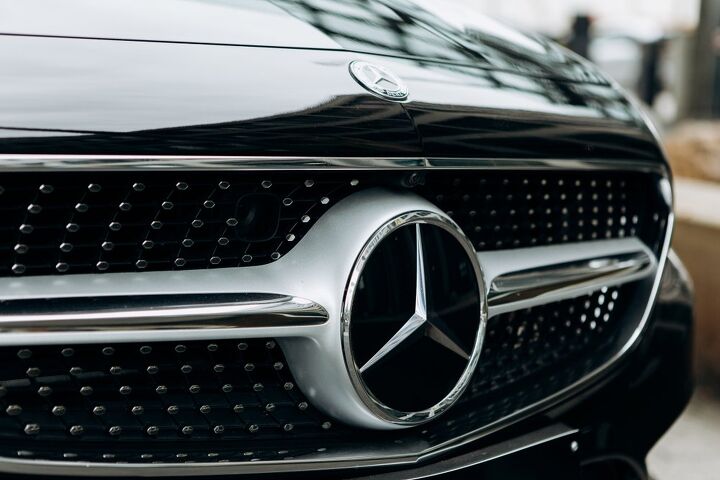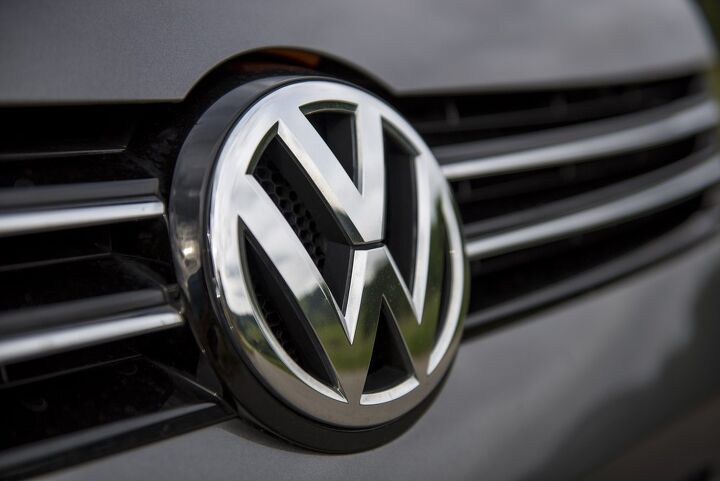#Dieselgate
Dieselgate Resurgence: Ex-Audi CEO Faces Conviction in German Regulation Scandal
Reports have emerged in Germany that former Audi CEO Rupert Stadler is about to become the upper-echelon automotive executive convicted in the diesel emissions fiasco perpetrated by Volkswagen Group. A Munich court issued a preliminary assessment on Tuesday, stating that an accusation of fraud had been substantiated.
How I Missed the Biggest Automotive News Story of the Past Decade
Dieselgate. It was one of the biggest corporate scandals in recent history, resulting in billions of dollars in fines, CEOs stepping down in shame, a few scattered criminal charges, and the death of Volkswagen’s beloved TDI diesel engine line in North America. You could even argue that the current accelerated push for EVs is just ongoing fallout from the initial Dieselgate dirty bomb. But by far the worst thing about Dieselgate is that I saw things happening with my own eyes back in 2008, had no idea what I was looking at, and blew my chance to break the biggest automotive news of the decade.
Allow me to set the stage a bit.
Judge Approves Daimler AG's $1.5 Billion Diesel Emissions Settlement
On Tuesday, a federal judge approved a $1.5 billion settlement to pump the brakes on an investigation conducted by the U.S. government pursuing claims that Daimler used illicit software that allowed excess diesel emissions on 250,000 units. This runs in tandem with another $700 million settlement the automaker is making with vehicle owners, which is likely to see final approval in a few months, and an extensive recall campaign.
The federal case involves the U.S. Justice Department, the California Air Resources Board, and follows a trend of fines for automakers accused of misleading regulators so that diesel vehicles could continue being sold. This kicked off with Volkswagen’s Dieselgate in 2015, with numerous government probes taking place in Europe and North America over the next five years. Many automakers have since been discouraged from relying on diesel powertrains due to rising regulatory actions. European countries that once championed the fuel as ecologically preferable to gasoline, after the advent of biodiesels, are now obsessed with tamping down NOx emissions and getting more electric vehicles onto the road.
California Urges Manufacturers to Tattle on Themselves
On Wednesday, the California Air Resources Board (CARB) urged manufacturers to disclose any unapproved hardware or software that might place a vehicle’s emissions outside of the acceptable parameters of legality. CARB said those who comply would be subjected to reduced penalties and reminded everyone that it’s going to be opening a state-of-the-art testing facility that will be better at catching cheaters in 2021. It’s so advanced, the board suggested it might even be able to catch totally new violations.
You’ve likely seen this tactic employed by an exasperated parent or substitute teacher. An illicit substance is found tucked away somewhere and they parade it around demanding whoever owns it to fess up immediately or face harsher consequences later. This obvious trap is best avoided by committing a lesser crime right then and there or being so obstinate that you’re issued a minor punishment just for being annoying — thus freeing you of suspicion for the pornography Mr. Lawson found taped beneath the bleachers.
Daimler Agrees to Pay $2.2 Billion Diesel Emissions Settlement
Daimler has officially agreed to pay $2.2 billion as a resolution to the United States’ diesel emissions cheating investigation and over 250,000 claims from Mercedes-Benz customers. The automaker stated that it was likely going to settle in August, estimating a need to set aside roughly $1.5 billion to appease U.S. authorities. Another $700 million was earmarked for civil suits, with the company assuming millions more would be needed to fulfill the requirements of the various settlements.
Court documents shared by Reuters show the company agreeing to pay 250,000 owners up to $3,290 each on vehicles that exceed regulatory emissions standards through the use of emissions cheating software. It also decided against opposing spending $83.4 million in attorney fees and expenses for the owners’ legal representation — something Volkswagen called “unwarranted” in a similarly sized suit where the attorneys were only asking for $59 million. However, VW’s emission woes have remained obnoxiously persistent since 2015 and have cost it well over $40 billion.
By contrast, Daimler is getting off with a slap on the wrist by settling for just a couple billion smackers. Although the likelihood of further criminal action remains relatively high in both the United States and Europe. Keep in mind that it took prosecutors nearly five years just to get this far and governments around the globe are disavowing diesel vehicles as if they appeared in a group photo on Jeffrey Epstein’s private island.
Former Audi Managers Indicted in Dieselgate Case
On Thursday, Munich-based prosecutors announced the indictment of four more ex-Audi managers in relation to Volkswagen Group’s infamous diesel emission scandal. This follows the charges brought against former CEO Rupert Stadler and a handful of Audi staffers in 2018.
The latest indictment involves three former board members and one department head who has since retired. Prosecutors stated the alleged crimes relate to 434,420 cars manufactured by VW Group brands which we already know where sold with trick software designed to circumvent emissions testing, according to Reuters and German outlet Handelsblatt. However, the grand total of vehicles suspected to be in violation of regulatory law are suggested to be closer to 11 million globally.
Volkswagen's Dieselgate Concludes in the U.S.
Volkswagen Group appears to have completed the terms laid out by the U.S. Department of Justice after it decided the automaker required some oversight in the wake of the 2015 emissions fiasco (colloquially known as Dieselgate). VW was found guilty of equipping certain models with emissions-cheating software that would allow the car to run cleaner under testing conditions (passing regulations) and dirtier, with better performance, the rest of the time.
The con was brilliant and allowed VW to fool regulators for years until it all blew up in its face. Getting caught in the United States kicked off a chain reaction that cost the automaker a fortune globally. In May, VW estimated it had spent €31.3 billion ($34.40 billion USD) in fines and settlements and fines globally — adding that it expects to bleed another €4.1 billion through 2021. But the company was certainly happy to announce on Monday that it had adhered to settlement deal it reached with the Department of Justice and California’s Attorney General.
Probing Continues at Volkswagen, Continental
German prosecutors have incorporated Continental into a probe aimed at determining whether Volkswagen Group cheated on emissions testing. While confessing to the crime in the United States years earlier is a fairly good indication of corporate guilt, Germany wants to make extra sure VW was in the wrong and has branched out its investigation to include suppliers that may have played a role.
On Wednesday, the automaker acknowledged it had been subjected to yet another probe after investigators arrived to comb through its offices. The same treatment was given to supplier Continental, which is suspected of having some sort of involvement in a scandal the automotive industry can’t quite seem to move on from.
Ghosts Of Dieselgate: VW Loses Important Case in Germany
Volkswagen’s emission-related malfeasance was promptly identified and dealt with in the United States. The company was accused of using suspect software to game testing scores on diesel-equipped models in 2015. By October of 2016, VW was on the hook for a $15.6 billion financial penalty, in addition to mandatory fixes or buybacks on affected vehicles.
Things progressed differently on the European front. Germany has subjected the manufacturer to numerous investigations, ultimately deciding to fine the firm $1.18 billion in 2018 and enact widespread recalls. Civil suits have largely focused on VW’s legal representatives denying the software had any ill intent, claiming it was simply code that mistakenly allowed the cars to become non-compliant with regulatory limits. This didn’t fly, however, with a gigantic UK lawsuit finding the automaker guilty of intentionally misleading customers in April.
This week, VW lost another important legal battle in Germany when the Bundesgerichtshof found it guilty of cheating on emissions testing years earlier. The Federal Court of Justice in Karlsruhe decided disenfranchised diesel van owner Herbert Gilbert was entitled to a €28,000 payday, setting a precedent for thousands of other claimants seeking revenge.
Volkswagen Diesel Lawsuit Ends in German Settlement
German consumer group VZBV has reached an agreement in its class-action lawsuit against Volkswagen over the use of illegal software intended to cheat emissions testing. The settlement amounts to 830 million euros (roughly $912 million USD). While not nearly as sizable as what U.S. customers received in their settlement, it’s what VW believes its European customers deserved. Citing a breakdown in negotiations with VZBV earlier this year, the automaker said it was willing to offer €830 million and wasn’t interested in shelling out any extra for litigation attorneys who allegedly wanted €50 million for handling the case.
The manufacturer seems to have gotten its way, though we doubt VW considers shelling out another billion to handle a five-year-old scandal a major victory.
Defeat Device Suspicions Lead to Mitsubishi Probe
Mitsubishi is under investigation by German prosecutors for the suspected use of illegal defeat devices on diesel engines. As usual, the probe was kicked off by a series of raids — practically a cliche at this point.
Germany has certainly ran with the concept after U.S. regulators faulted Volkswagen for using illegal defeat devices to cheat diesel emission testing procedures in 2015. The reality is that regulators are cracking down the world over since the scandal, with Deutschland taking extra precautions to ensure other domestic brands don’t shame themselves like VW did.
Investigators are looking at 1.6-liter and 2.2-liter 4-cylinder Euro 5 and Euro 6 diesel engines and asking individuals who own Mitsubishi models (built after 2014) with those units to contact the police.
Daimler Investors Seeking 900 Million in Diesel Damages
Over 200 investors are seeking 900 million euros in damages over claims that Mercedes-Benz parent Daimler failed to disclose the use of emissions cheating devices similar to those that got Volkswagen into trouble back in 2015. This isn’t the first time the issue has come up. German prosecutors claimed nearly 690,000 Mercedes-Benz vehicles came equipped with rigged exhaust gas after-treatment systems and Daimler was slammed with a €870 million ($960 million) fine over the negligent violation of European clean air standards in the fall.
Those who invested into the firm are hoping to recoup losses from the scandal after the automaker’s share price shat the bed. Lawyers repressing the investors are seeking compensation after Daimler’s stock fell from €90 a share fall to approximately €60 in 2018, once German regulators began formally accusing the automaker of trying to circumvent emission rules.
Volkswagen Charged With Violating Vehicle Emission Rules in Canada
Volkswagen Group can’t seem to escape the rippling effects of its 2015 emissions cheating scandal. It wasn’t long ago that the automaker was subjected to surprise raids from German prosecutors, still investigating its regulatory malfeasance. On Monday, Canada threw its hat into the ring — charging the company with importing roughly 128,000 vehicles into the country in direct violation of its environmental laws.
Environment and Climate Change Canada (ECCC) announced VW is facing 60 counts of breaching the Canadian Environmental Protection Act by selling automobiles that fell outside the prescribed emission standards. Broken down, that includes 58 counts of contravening the law between 2008 and 2015 with two counts of providing misleading information.
Volkswagen Raided Again Over Diesel Emissions Scandal
German prosecutors raided Volkswagen’s Wolfsburg headquarters on Tuesday, continuing their prolonged quest to bust the automaker over a diesel emission scandal that has been more or less settled in the United States since 2017.
Germany must want to do an incredibly thorough job of investigating the automaker — it’s difficult to imagine raiding the same offices over and over being all that fun, especially after VW formally confessed its malfeasance in other parts of the world. However, according to Reuters, prosecutors might be looking for something different this time around. Volkswagen has said it is still cooperating with authorities, but described its latest surprise encounter with them as unfounded.
Damages From VW? German Diesel Drivers Face Uphill Battle in Court
While Volkswagen Group’s diesel lawsuits are more or less settled in the United States, 470,000 diesel owners in Germany are still fighting to see their payday. Unfortunately, the courts aren’t certain they’re deserving.
The court hasn’t settled on anything, but Monday’s introductory hearing concluded with presiding Judge Michael Neef wondering what customers actually lost by having their vehicles equipped with emissions-cheating software. The court claims its primary goal is to assess whether or not any loss in value can be attributed to vehicle bans that came years after VW’s diesel scandal broke. It’s concerned that drivers’ ability to continue using the automobiles doesn’t warrant awarding owners damages.
“It doesn’t make sense to us that drivers should be granted the right to use cars for free,” Neef said on behalf of the three judges hearing the case, according to Bloomberg. “Otherwise, we would have to grant punitive damages that do not exist under German law.”


























Recent Comments